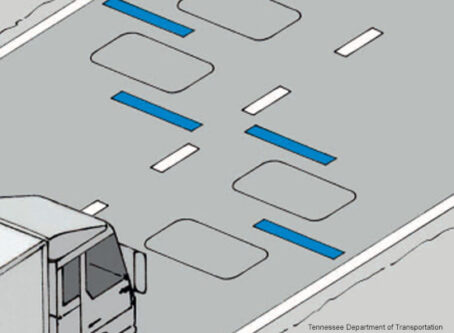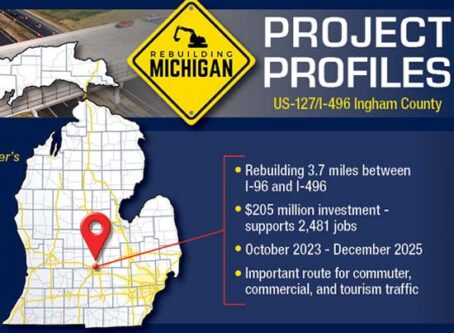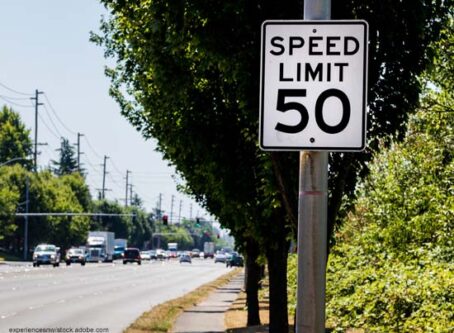Six states taking steps to end ticket quotas
Legislators in states around the country are pursuing action they are hopeful would put an end to police going on ticket-writing sprees of fulfilling ticket quotas.
Communities nationwide are able to generate revenue from different types of fines. In certain locales, fines account for a disproportionate amount of local revenues. These municipalities are known for being speed traps.
The National Motorists Association says that “a speed trap exists wherever traffic enforcement is focused on extracting revenue from drivers instead of improving safety.”
According to figures compiled by Governing magazine, there are about 600 jurisdictions around the country where fines and forfeitures account for more than 10% of general fund revenues. There are 80 where the share exceeded 50%.
About 20 states have acted to discourage practices that pressure law enforcement officers to write citations to meet a ticket quota.
State legislators continue to seek rules aimed to eliminate potential abuses.
Minnesota
Pursuit is underway in the Minnesota Legislature to address concerns about policing for profit.
Minnesota law forbids law enforcement agencies from implementing an order, mandate, requirement or suggestion to an officer a ticket quota.
Legislation would extend the protection to include prohibiting any agency from using the number of citations issued, the number of traffic stops made, or traffic enforcement activity by an officer as criteria to evaluate performance. The protection would also apply to arrests.
The House bill, HF244, is in the House Public Safety and Criminal Justice Reform Finance and Policy Committee. The Senate version, SF313, is in the Senate Judiciary and Public Safety Finance and Policy Committee.
Mississippi
A Mississippi House bill would prohibit any law enforcement agency from establishing a policy that requires officers to meet a ticket quota.
Sponsored by Rep. Rickey Thompson, D-Shannon, the measure would forbid the number of arrests or citations issued by an officer from being the sole criteria for a promotion, demotion, or dismissal.
Arrests or citations issued could be considered when evaluating overall performance.
The bill, HB883, is in the House Judiciary B Committee.
New Jersey
The New Jersey Senate voted overwhelmingly to advance a bill that is intended to curb policing for profit.
State law prohibits ticketing numbers from being the “sole” factor when evaluating officer performance.
The bill, S1322, would close the loophole. Specifically, law enforcement agencies would be prohibited from using the volume of an officer’s arrests or citations as a factor when evaluating that officer’s overall performance.
“Officers are all too often pressured to write more tickets to increase revenue and help municipalities balance their budgets,” Sen. Shirley Turner, D-Hunterdon/Mercer, said in previous remarks.
Critics say there is no “one size fits all” standard of performance for law enforcement. Instead, police chiefs need to have the ability to establish performance measures and expectations specific to their individual agencies.
Another provision in the bill would prohibit agencies from posting arrest and citation data in common areas accessible to all officers “to create competition between officers concerning arrests and citations.”
The bill is in the Assembly Law and Public Safety Committee.
New York
Across the state line in New York, an Assembly bill is meant to remove a gap in the protection against overzealous ticketing.
The Empire State prohibits an employer from transferring or penalizing a police officer for failure to meet an established ticket quota.
Bill supporters point out it is possible, however, that an employer could deny a promotion to a police officer who fails to meet a ticket quota.
In an effort to address the concern, A1405 would outlaw an employer from denying a promotion to an officer solely because the officer failed to meet an established quota.
The bill is in the Assembly Labor Committee.
A related bill in the Senate Labor Committee covers concern about ticket quotas.
S1253 would specify that violation of existing statute could result in up to one year in jail.
Oklahoma
One Oklahoma state lawmaker has renewed his pursuit of a rule targeting ticket quotas.
State law prohibits cities and towns from generating more than half of their revenue through traffic fines.
Sen. Nathan Dahm, R-Broken Arrow, is behind a bill to outlaw local governments and police departments from requiring officers to issue a certain number of citations within a specific period of time. Additionally, agencies would be prohibited from evaluating personnel based on the number of tickets written or arrests made.
Violators would face removal from their position.
“It’s an unspoken rule that some jurisdictions may emphasize issuing citations at different times to try and generate more revenue,” Dahm previously stated. “Our law enforcement officers, justices and judges should not be pressured by their employers to write additional tickets or collect revenue to keep their jobs.”
Dahm introduced the same bill a year ago. The Senate approved the bill, but it was sidelined in the House after the disruption to the regular session due to the pandemic.
The new bill, SB346, is in the Senate General Government Committee.
Pennsylvania
A bill in the Pennsylvania House would ban ticket quota language for any regional police department or agency in the state.
Sponsored by Rep. Greg Rothman, R-Cumberland, the bill would outlaw any ticket quota order, mandate, or requirement.
The protection would forbid law enforcement agencies from directly or indirectly, suggesting to any officer that the officer issue a certain number of citations over a specified period of time.
The bill, HB134, is in the House Transportation Committee. LL
More state trends
Keith Goble, state legislative editor for Land Line Media, keeps track of many trends among statehouses across the U.S. Here are some other articles by him.









